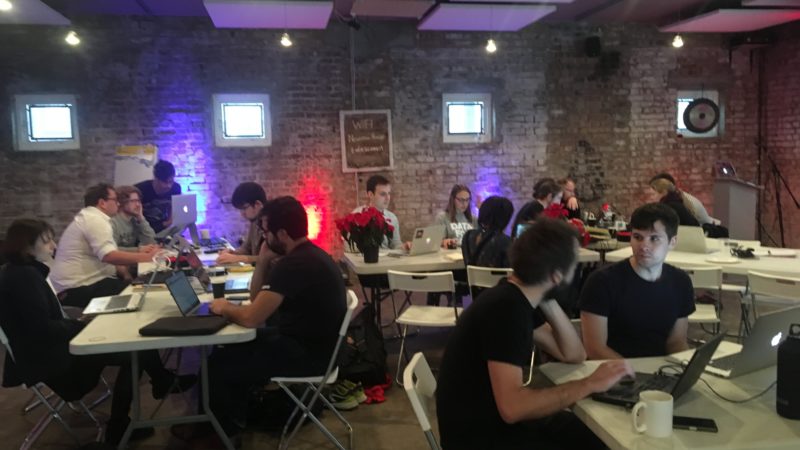
In 1945, Ian Mikardo was elected as the MP for Reading after overturning a large Tory majority. His campaign was the first to test and use the now universally adopted get-out-the-vote campaign, otherwise known as the Reading System. GOTV forms the basis of Labour election strategy to this day. But is it the best model we could use? How do we know?
Campaign theory tends to use successful high-profile campaigns as the ongoing template for “best practice”, then replicated until the model is overtaken by some new external disruption or – as we’re finding now – new technologies. This unscientific way of deciding how to prosecute a campaign can have a major impact on our politics. Richard Nixon won the 1968 US Presidential election with his focus-group and sound-bite approach that would come to dominate modern campaigning techniques. But what if Nixon was just lucky? What if Sirhan Sirhan’s bullet missed and the template for the modern campaign had been inspired by Robert Kennedy’s campaign, dubbed “The Loving Community”? What if it would seek to educate rather than manipulate, reconcile rather than divide, engage in dialogue rather than feed people the message of the day?
We started Campaign Lab eight months ago with a simple premise. Thousands of activists across the UK volunteer their time and energy for electoral campaigns every year. Year in, year out, we use the same campaigning methods and tools we always have because we think they work. But there have never been contemporary analyses or studies undertaken to assess the impact or value of electoral campaigning methods in the UK. We thought to ourselves, if no one else is doing this, then maybe it’s about time we started.
Since then, we’ve run eight hackathons and meet-ups bringing together hundreds of data scientists, activists, campaign organisers and political researchers. Perhaps more importantly in the current context, our events have attracted participants from across the entire length and breadth of the Labour movement – trade unionists, Momentum organisers, cooperative practitioners, community organisers and Labour Party organisers, all keen to try something different. What’s amazing is that they are all learning from each other, sharing skills, knowledge and approaches to generate something new and different.
Campaign Lab is a faction-free space. The organisers and core volunteers are all from different sides of the movement, but that doesn’t phase us because we understand that we have common problems and challenges to overcome. By reaching out, we’ve built a community. Like many traditional progressive political parties, the Labour Party has developed a strong centralising and risk-averse culture, keeping its cards close to its chest, failing to engage with and deploy the vast numbers of skilled volunteers at its disposal in a meaningful way that respects their commitment and autonomy. If Labour continues with this approach, a centralising tendency deeply entrenched in its current structures, it will continue failing to effectively navigate and communicate in our changing world.
After many months of work, we’re starting to see some interesting outputs. The Campaign Lab community has produced a comprehensive inventory of over 200 datasets covering a range of sectors from housing to policing. We hope this will be an important open resource available for other groups conducting electoral analysis and monitoring. Candidates are reaching out to us and asking to partner with them on running campaign experiments in their upcoming elections, unleashing our community resources for their benefit. We’ve already disproven the widespread myth that if you raise council tax you lose votes in a local election and we’re working hard exploring the possibility of a new School Cuts style platform for upcoming election campaigns, but it doesn’t end there.
Progressives have an innovation problem. Campaign Lab is one example of how we might start experimenting with how we can do things differently, how we can build a home for different communities within the Labour movement and use their skills and insight beyond the traditional expectations of the party member. While the right has a monopoly on access to funding, the left has always counted upon our passion, commitment and ingenuity. Where the right pay, we have to pioneer. From the early cooperatives to the trade union, the left has a long history of unlocking the potential of people through the networks and communities we’ve built. We need to remember this tradition by engaging with emerging communities of practice, like Campaign Lab and The World Transformed, so we can harness the power of new networks within our movement today.
If you want to find out more about Campaign Lab, get in touch with us, join our slack channel or come along to our next Hack Day on 23rd February. Campaign Lab is supported by Labour Together and Newspeak House. the London College of Political Technologists.
This piece was commissioned by Labour Together, which is guest editing LabourList this week.




More from LabourList
‘Labour council candidates – it’s tough, but all is not lost’
‘Labour won’t stop the far right by changing leaders — only by proving what the left can deliver’
‘Cutting Welsh university funding would be economic vandalism, not reform’